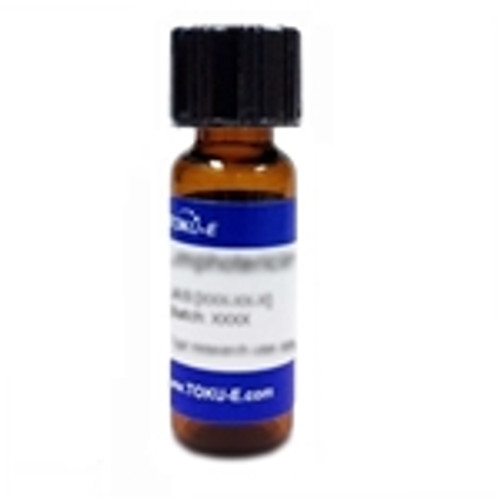Radicicol is a resorcylic acid lactone, produced by several fungal species, that exhibits broad spectrum antifungal and antitumor activity. As a cell differentiation modulator, radicicol has anti-angiogenic activity in vivo, inhibiting the proliferation of plasminogen activator production by vascular endothelial cells.
Radicicol is soluble in ethanol, methanol, DMF and DMSO. It has poor water solubility.
| Mechanism of Action | Radicicol has been the subject of extensive investigation and inhibits protein tyrosine kinase, induces the differentiation of HL-60 cells into macrophages, blocks cell cycle at G1 and G2, suppresses NIH 3T3 cell transformation by diverse oncogenes such as src, ras and mos, and also suppresses the expression of mitogen-inducible cyclooxygenase-2. |
| References | Some metabolites of Nectria radicicola Gerlach & Nilsson (syn. Cylindrocarpon radicicola Wr.): The structure of radicicol (monorden) Mirrington, R.N. et al. , Aust. J. Chem., 1966, 19, 1265. Induction of differentiation of HL-60 cells by the antifungal antibiotic, Radicicol. Shimada, Y., et al. J. Antibiot. 1995, 48, 824. Radicicol inhibits tyrosine phosphorylation of the mitotic Src substrate Sam68 and retards subsequent exit from mitosis of Src-transformed cells. Pillay, I., et al. Cell. Growth Differ. 1996, 7, 1487. Radicicol a microbial cell differentiation modulator inhibits in vivo angiogenesis. Oikawa, T., et al. Eur. J. Pharmacol. 1993, 241, 221. Suppression of RAS and MOS transformation by radicicol. Zhao, J.F., et al. Oncogene 1995, 11, 161. Chemistry and biology of resorcylic acid lactones. Winssinger N. and Barluenga S.. Chem. Commun., 2007, 22. |



